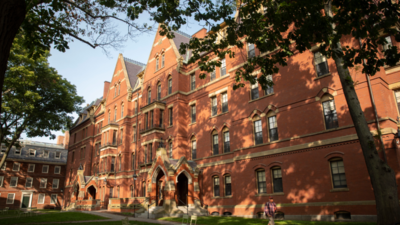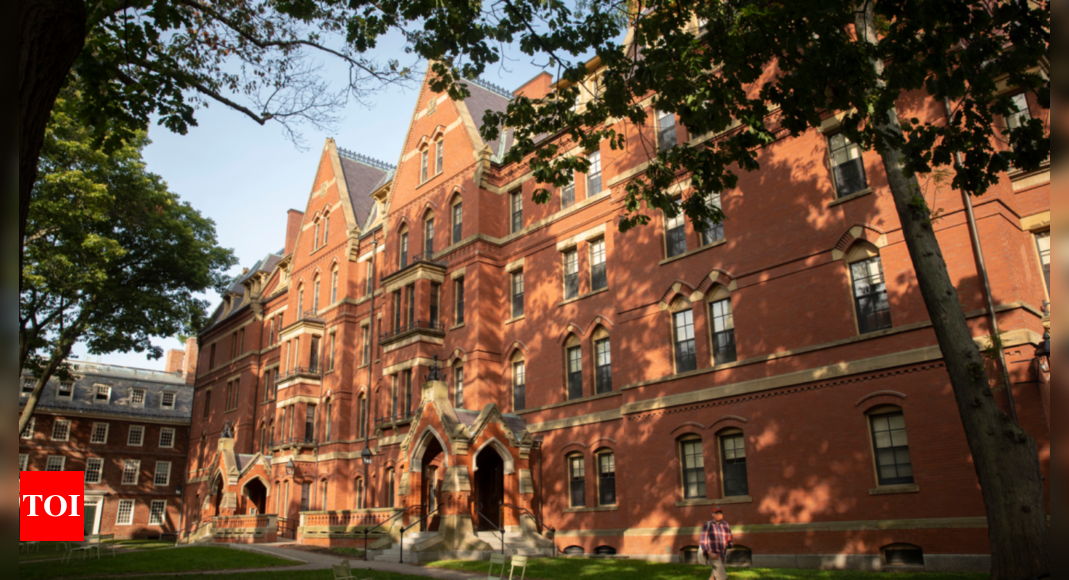[ad_1]

A recent report highlights that the United States remains the ultimate destination for MBA aspirants, thanks to the unparalleled reputation of its business schools. According to the Graduate Management Admission Council (GMAC), American universities continue to top the list for prospective MBA students worldwide, a trend reflected in the latest QS Global MBA Rankings. Schools like Stanford Graduate School of Business, Harvard Business School, and the University of Pennsylvania’s Wharton School are consistently ranked among the world’s best, known for their rigorous academic standards, influential faculty, and transformative alumni networks. Stanford, for example, is celebrated for its entrepreneurial focus and innovation-driven culture, while Harvard’s case study method prepares students for real-world problem-solving. Wharton, known for its strength in finance, produces graduates equipped to lead at the highest levels in global organizations.
Adding to the appeal, U.S. MBA programs offer a dynamic blend of networking opportunities and access to internships, especially within thriving business hubs like Silicon Valley, New York City, and Chicago. Universities such as MIT Sloan and Columbia Business School further add to the draw, with programs rooted in data-driven decision-making and global business practices, respectively. For many, studying at a U.S. business school is seen as a stepping stone to career advancement and access to high-impact roles across industries. This consistent preference underlines the unique value that U.S. business education brings to MBA aspirants worldwide, fostering a brand of leadership highly sought after in today’s competitive market.
GMAC Application Trends Survey 2024: Key Insights
According to the latest survey by GMAC, applications to graduate business schools worldwide increased by 12% in 2024, reversing two years of decline. This uptick hinges on new financial aid options offered by many programmes, addressing affordability issues that have previously deterred prospective students from pursuing advanced management degrees.
GMAC’s Application Trends Survey 2024 collected data from 1,090 programmes across 297 schools in 40 countries between June and August 2024.
- U.S. Remains a Top Destination for International Students: The United States continues to be a preferred choice for international students. A significant number of potential applicants have expressed that the upcoming presidential election will not negatively impact their study plans, a shift from previous election cycles.
- Decline in U.K. Applications: Conversely, the United Kingdom experienced a concerning 45% decrease in domestic applications and a 12% drop in international interest.
- Growth in Traditional MBA Programmes: The surge in applications is largely driven by a renewed interest in full-time, in-person MBA programmes. Nearly 60% of such programmes reported an increase in applications, with 80% of two-year full-time MBAs and 64% of one-year MBAs seeing growth—the highest rates in a decade. Master’s programmes in accounting and management also experienced significant increases, and even online and hybrid programmes reported growth of 58% and 52%, respectively, highlighting the sustained demand for flexible study options.
- Increase in Women’s Applications: The number of applications from women is also on the rise, now comprising 42% of all applicants, reflecting a 2% increase over the past decade. Fifty-five percent of programmes noted an increase in female applicants, with MBA programmes showing the most significant gains. Seventy percent of flexible MBA programs and nearly two-thirds of full-time MBAs reported higher application rates from women.
What Makes MBA Aspirants Flock Towards US Universities?
No wonder, U.S. universities have long been celebrated for imparting top-notch programmes, and Management courses are no exception. Here are some factors that make it a forever fascinating study destination for MBA aspirants.
Quality of Education
The US is renowned for its high academic standards and rigorous evaluation processes. Many American business schools consistently rank among the top globally, thanks to their experienced faculty, innovative curricula, and state-of-the-art resources. The focus on critical thinking, problem-solving, and leadership skills prepares graduates to excel in various business environments. According to the latest QS Global MBA Rankings, some of the leading business schools in the United States include Stanford Graduate School of Business, the Wharton School at the University of Pennsylvania, and Harvard Business School.
Networking Opportunities
The US offers unparalleled networking opportunities for MBA students. With a diverse mix of classmates, faculty, and industry professionals, students can establish meaningful connections that extend beyond their time in school. Networking events, workshops, and guest lectures by industry leaders allow students to engage with potential employers and peers, creating a robust professional network that can be invaluable throughout their careers. Many successful business leaders credit their networks developed during their MBA programmes for their career advancements.
Innovative Curriculum and Specialisations
American MBA programmes are known for their dynamic and innovative curricula that reflect the latest trends and challenges in the business world. Schools frequently update their courses to incorporate emerging technologies and methodologies, ensuring that students acquire relevant skills. Additionally, the availability of specialisations, such as data analytics, sustainability, and entrepreneurship, allows students to tailor their education to align with their specific career goals and interests.
Strong Career Services and Job Placement Rates
US business schools typically offer robust career services that assist students in their job search. These services often include resume workshops, interview preparation, and access to job fairs. Many schools maintain strong relationships with leading companies, facilitating internships and job placements for graduates. High job placement rates, often reported in school statistics, indicate the effectiveness of these services, providing students with confidence in their post-MBA career prospects.
Cultural and Global Exposure
Studying in the US exposes MBA students to a multicultural environment where they interact with peers from various backgrounds. This cultural diversity enriches the learning experience, fostering a global perspective that is essential in today’s interconnected world. Understanding different business practices and cultural nuances equips students with the skills to operate effectively in diverse settings, making them more competitive in the global job market.
[ad_2]
Source link




